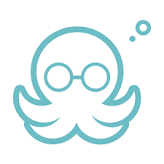Starting Monday, March 6, 2017, I am embarking on the 1:1:1 Challenge. No, this isn't the Catholic 1-1-1 Challenge, although their challenge is pretty cool. The 1:1:1 Challenge is one that I created on my own to pursue my interests and to do the work necessary to build the expertise I want to have. According to my challenge, every week, I will complete the following:
- one video game
- one book
- one craft
The challenge does come with a few rules and caveats:
- Completing a video game means reaching the credits and/or end screen. It is up to my discretion whether or not to 100 percent a game.
- Completing a book means reading a book from start to finish
- Completing a craft means creating something from scratch into a final, new product or form
- I am allowed to repeat video games, books and crafts. It doesn't have to be "new" to me to count toward the challenge.
- If a game video game will take longer than a week to complete (I do still need to eat, sleep and work), then the challenge can be extended to two weeks for the completion of that game only.
- A "craft" is defined as "an activity involving skill in making things." Crafts include, but aren't limited to, paintings, mixed media art, jewelry, blog posts, papercraft, textiles, text-based video games.
Why Video Games, Books and Crafts?
Video games and books are chosen primarily to build my repertoire. My vision is to be an expert in post-escapism, which is the field of understanding "games by placing them in social, political and cultural context. It finds value in what game says about the world around it." Post-escapism combines my love of gaming with my interests in activism, human rights, public police and the like. Playing video games will build my repertoire of games to analyze and place into context. Books will build my repertoire and understanding of past and present social, political and cultural contexts.
Crafts are the synthesis of the first two, since there's little point of building repertoires if the actual analysis is never completed. It's the chance to connect what I've learned, played and read so far. Although I am a writer by trade, writing isn't the only way to practice post-escapism, which is why I defined it to include so many different mediums. Craft is also defined as a trade or a handicraft, and I liked the idea of creating crafts while also working on honing my craft.
Why Do This Challenge at All?
I am embarking on this challenge and creating it for myself as a matter of discipline. I feel I need to double down on my strengths and interests and this challenge is a great way to do that while also pushing myself to execute and to create, whether that's through writing or painting or a household good or what. It's good to play video games and to read books and to think about their contexts, but that alone isn't going to make me a post-escapism expert or build my credibility as said expert.
Also, now that I have the language of post-escapism, I'm excited to explore it and perhaps define its study and some its major theories. It's a rather new field within video games analysis, culture and "new games journalism." I think it'll be really cool to be a part of this evolution within video games. I need a way to get started and embarking on a challenge is the perfect way to get started!
When Does the Challenge End?
Hopefully, the challenge never ends. There will always be new video games and new books to discover. The political, social and cultural contexts in which these media exist will always be changing. The artistry and creativity needed to create great crafts are boundless. Ideally, I could do the challenge forever and tweak it so it includes more types of media. Eventually, I could make it harder by increasing the quantity per week or decreasing the amount of time to take on all three items.
What video games, books and crafts are you doing first?
The video games I am tackling first are Democracy 3, Shovel Knight, Grand Theft Auto: Vice City, Hand of Fate and Cook, Serve, Delicious. All of these games are titles I've already started, so they are first on my list so I can finish them. GTA Vice City may take me longer than a week to finish, but I think I can do it. I'm about halfway through the game if I remember correctly. I do have a full list of video games I plan to tackle, which is ever-changing as I complete games and own more titles and consoles.
I also have a list of books I plan to read. The first eight books on the list are the first eight I will read because I either own those books or I have them in my possession from the library at the moment. After those eight books, I will read books in any order based on availability and/or interest at the time. Like the video games list, the books list is also ever-changing as own more books or discover new titles that'll provide great information.
As for crafts, I do have projects I need to finish as well before starting on anything new. I do have signs and coasters I need to make since I already have the materials to do those. I also need to make a present for a wedding reception coming up later this year, and have just the canvas for that present. Besides those, there will be plenty of ideas for blog posts, ZEEF lists and other artistic endeavors.


 Almost 10 years ago, I arrived in St. Louis to interview for the
Almost 10 years ago, I arrived in St. Louis to interview for the 






